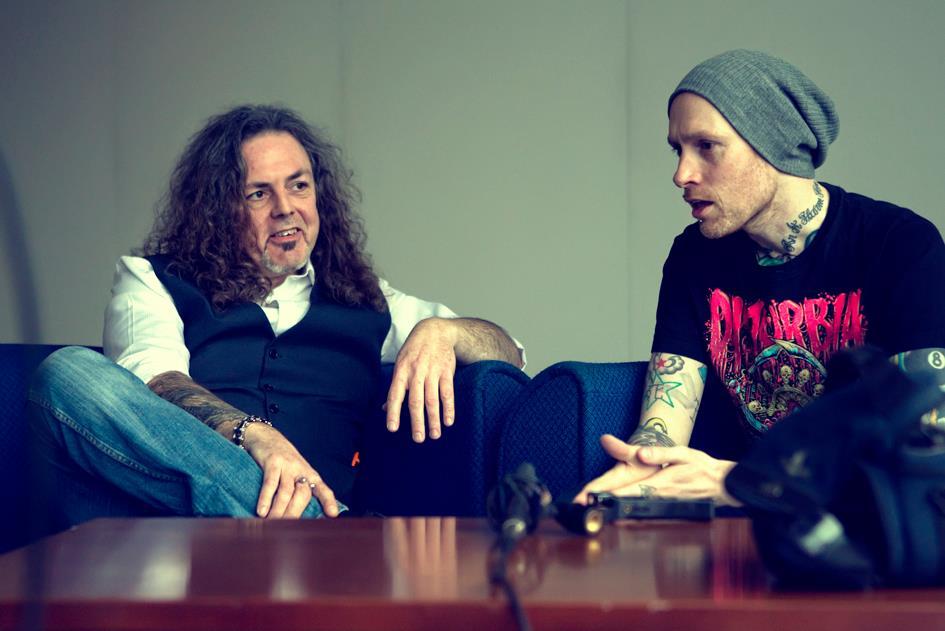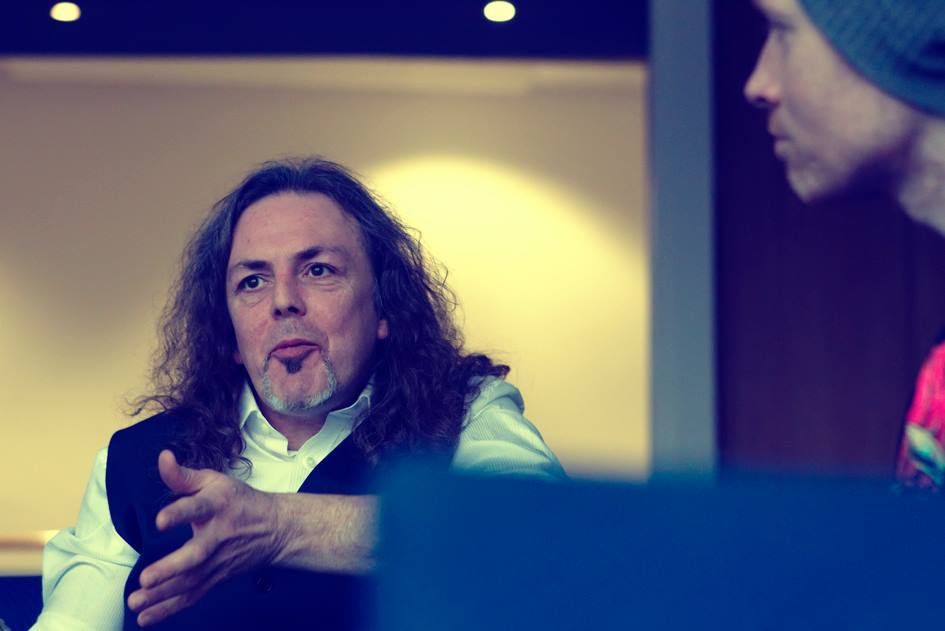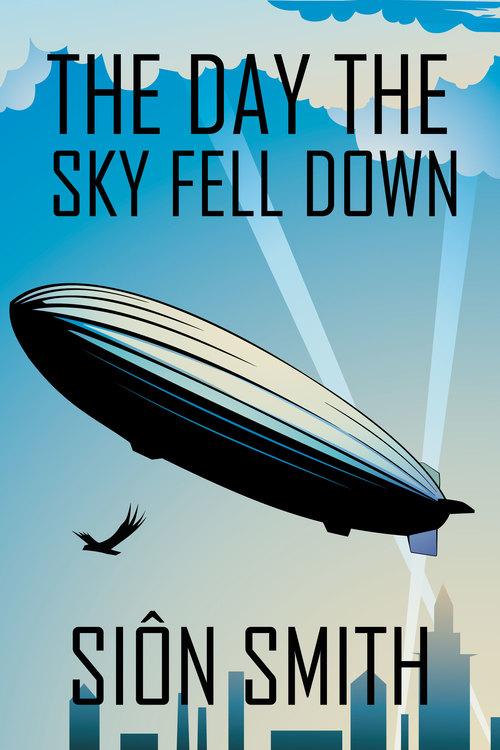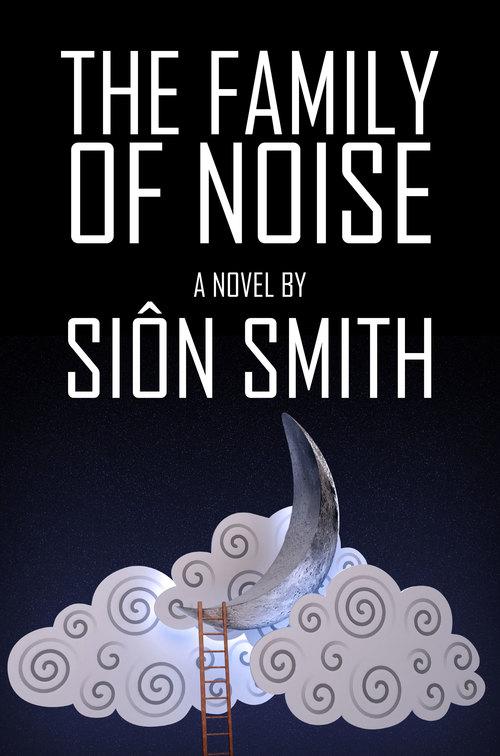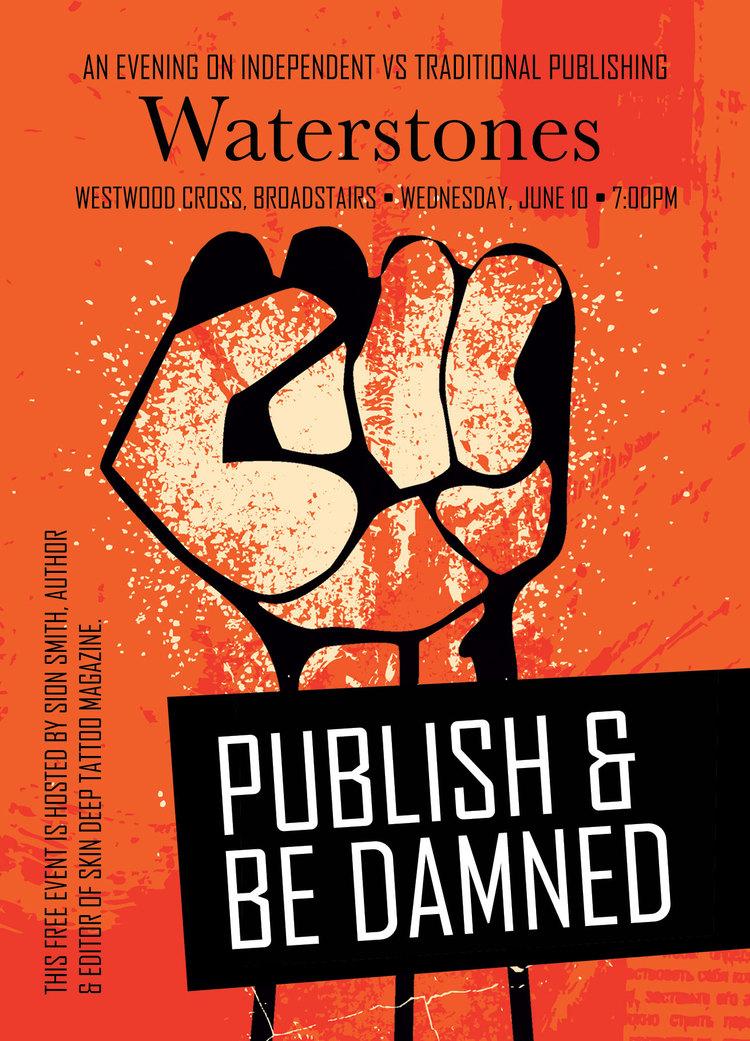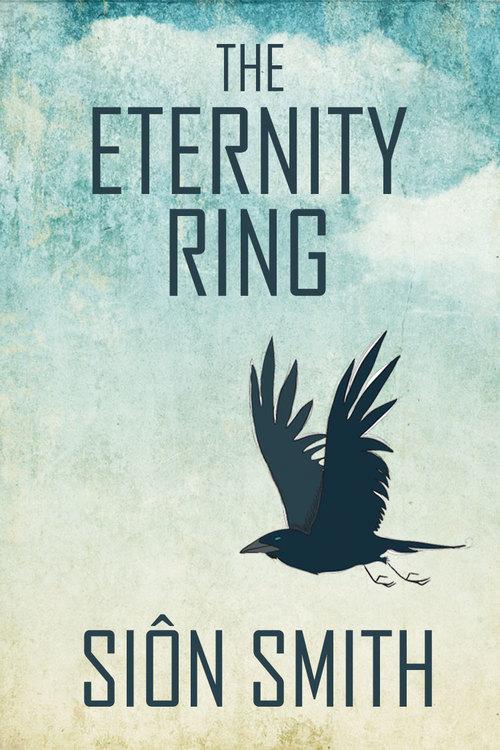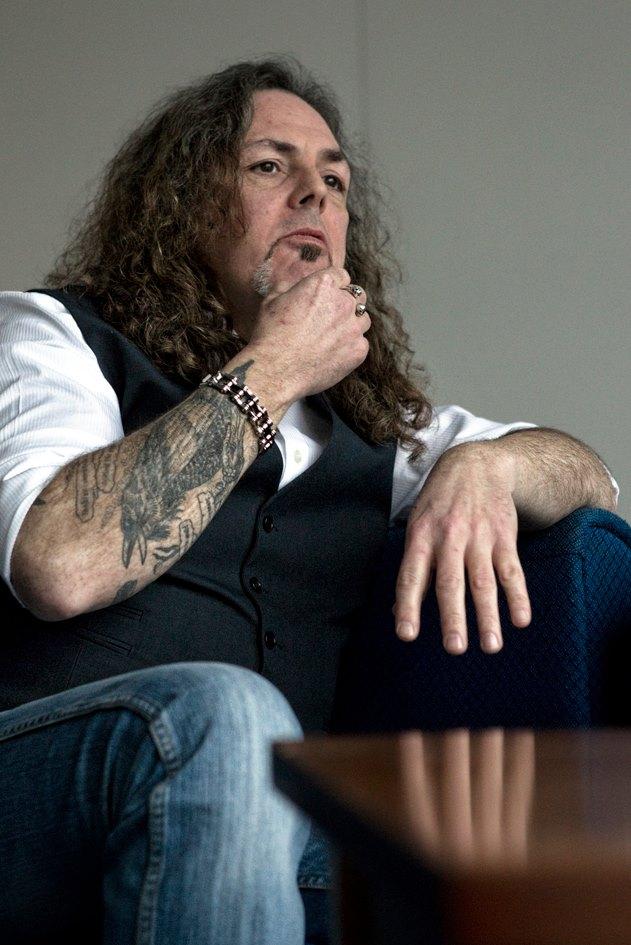Mr Sion Smith is no stranger around these parts. Having designed the cover for one of our bestselling titles, Wayne Simmons’ THE GIRL IN THE BASEMENT, he’s part of our ever growing Infected family! As Sion releases a new book, THE FAMILY OF NOISE, with a great evening at Waterstones to celebrate such, we sent our man Wayne to meet with him and have a chat about all things writerly and publishly. It’s going to be a long one so grab yourself a drink, kick back and enjoy!
(Pictures by Scott Cole Photography)
WS: So, tell folks a little about yourself, Sion, and how you got into this writing lark.
SS: You know my name: Siôn Smith. Hmm. Doesn’t sound very much like ‘James Bond’ written down but for the record, Siôn is pronounced like Sean Connery. I made it to 45 without dying and aside from writing, I am also the editor of Skin Deep magazine.
My writing timeline is an odd one. I guess I really started writing cohesively as a songwriter in the early 90s but that span off into writing about music to make the rent. Time and events played themselves out and in 2003, I launched a rock music magazine called Burn – which then evolved into a magazine called Zero and subsequently devolved back to Burn. Along the way, I’ve also been a chef, a mag designer and I applied to join the police once but it turned out they didn’t have much call for Dirty Harry.
I’ve gotten to a point now at which I don’t want to do anything else – this is it to the end. All my toys are broken and all I have left to play with are words.
WS: You’ve a lot of experience working within music and tattoo journalism. What are the differences, for you, between writing, say, an album review and writing a short story?
SS: I have no idea. Honestly, no idea. If you make me think about it hard enough though, to review a product I either have to be into it wholeheartedly or despise it with such a passion that the words spill out far too easily. Time has tempered me on that front, so now I choose to say nothing when something is truly awful but I can always get behind an album or a book that I’ve managed to lose myself in – and that’s when passion and enthusiasm take over.
A student sent a CV to me this week looking for work experience at Skin Deep and attached were some examples of album reviews. Every single review took each album track by track and told me what they were hearing and how it compared to the previous track or previous album – it was frankly awful and heartbreaking to see the standard of what’s coming out of university because if you’re writing about music, I want to know how it makes you feel not what you hear. I want to know that you’re invested in whatever it is so deeply, you can’t help yourself from telling others because you’re sinking in its mud. That’s what I do and that’s what I expect – and exactly the reason I’ve stopped reading any music magazines.
With a short, I’m not the writer who sits in front of the blank piece of paper because there’s a story to write. I’m the writer who suddenly becomes distracted at dinner or gets lost while driving because an idea turned up and needs cleaning. I’m a big believer in Empty Head Writing. If you can silence the noise and make some room, the world will find a way to tip things in that you can make something out of. A forced story will always appear to be so – I know this to be true because in The Day The Sky Fell Down, I can point you at two that were forced, but they’re out there now and I won’t be doing that again.
WS: On the hackometer of popular fiction vs literary fiction, where would you pitch yourself and why?
SS: That’s a real humdinger of a question. I feel like you just sneaked up behind me with a blown-up paper bag. I’ve been tagged as a writer of Dirty Realism and that sits very comfortably with me. You yourself said I remind you of Nick Hornby. Others have mentioned Bukowski and Raymond Carver. I will happily wear all of those hats but would never dare pitch myself anywhere close because those guys are like the Holy Trinity for me. Those kinds of decisions are for readers to make and tell others about. That’s where the magic lies in being a writer surely? We are whatever people need/want us to be.
A future version of me would dearly love to look back and see that my readers viewed me as a ‘popular literary writer’ because my whole reason for doing this is to create books and stories people want to read because it resonates with them at some level. A reader said this to me last week:
“The stories in The Day The Sky Fell Down are so cleverly written, like they weren’t just written for the hell of it but that they were written ‘cause they were meant to be… which sounds totally odd but they felt that way to me.”
…and you know what, that’s everything I work for, right there in a nutshell.
WS: Tell us about some of your influences – both literary and non-literary?
SS: On the lit front, I grew up amongst huge readers, so there was never a shortage of material. Enid Blyton was my first love – the Five and the Seven set fire to my life in a big way. Then I met The Hardy Boys and The Three Investigators… if it looked like a mystery, you could count me in. Because of the sheer volume of books around the place, I got hooked early (maybe too early) on authors like Mickey Spillane, Leslie Charteris and Ian Fleming. There was also a seemingly never ending supply of MAD paperbacks courtesy of an uncle who glamorously travelled the world – I thought he was a spy because he also drove a Daimler but it turns out he worked for a chemical giant. I still say he was a spy though – what better cover story could you have than that?
When I hit my teenage years, my taste changed a little. Mystery came courtesy of Ed McBain (still the greatest crime writer of all time) but Leslie Thomas also came along with Woody Allen, Clive James, Stephen King and a lesser known author called Stanley Morgan. There were three/four channels of TV in those days. Everybody read books.
More recently, I still try to chew books up as much as I can. John Connolly is the best thriller writer we have working in the world today. Fact. If you’re not reading his Charlie Parker series, you’re missing gold. Poe Ballantine is also gold but in a different way and you’ll have to work a little harder to find his books. Lydia Davis is my literary heroine right now. Andrew Kaufman’s The Tiny Wife is likely the most perfect book ever written. Roberto Bolano, Zafon, Karen Maitland, Chuck Klosterman, Fred Vargas – there are so many authors I admire… but the point is, I am a product of everything I read.
If I don’t like a book, it’s thrown out of the window very early on, so the books that line my shelves ‘deserve’ to be there and I will be loyal and read everything they have written on that basis. Thus, I’m influenced and am a product of all of these people and as has been the whole story since time began, the way I mix them in my recipe makes me what I am.
When you begin to throw in non-literary influences, that’s when you really begin cooking with gas. For me, that’s an awful lot of bands (Alice Cooper, Kiss, Chris Cornell), a lot of cop shows (Starsky and Hutch, The Sweeney, Life On Mars) but I also have the private side of my life that colours everything too. I’ve studied shamanism and samurai history for over twenty years but equally, I can be so shallow I could cry. The last five years, I don’t think a day has gone by when I haven’t watched an episode of Californication. It makes me happy and sometimes that’s all you need.
WS: Your latest book, THE FAMILY OF NOISE, has just seen release through your own press, Bad Hare Books. Tell us a little about it and what, in your view, readers might enjoy about it.
SS: The Family Of Noise is an autobiographical account of growing up during the 70s and 80s. It’s the story of my life up until I was eighteen and told as seen through both rose tinted glasses and eyes that have been poked out with sticks, so there’s constantly a tricky balancing act at work in there between the light and the dark.
To sum it up, it’s about a dreamer who doesn’t fit in anywhere – which is probably the story of all our lives, right?
So far, feedback is more than I expected. Readers are mailing me messages of how it takes them back to when they too were growing up and telling me how it makes them feel and that’s more than I ever hoped for. Actually, that’s a lie. It’s exactly what I was aiming for – I hoped it would connect and provoke an emotional reaction because a good book should always be more than a bunch of paper sandwiched between some slightly thicker paper and then glued at the seams.
WS: You’ve got a night coming up at Waterstones soon looking at independent vs traditional publishing. Give us a flavour of what folks can expect from that. What are the some of the pros and cons, in your experience, to ‘going it alone’ as a writer?
SS: At the event itself, I’m hoping to answer a lot of questions for others who are either going it alone already or think it might be an option for them. It’s not as hard as it looks but it’s an awful lot harder than you think. You can either look at it as digging your own grave or turning your head the other way and seeing the wonderful mound earth you excavated from a hole. I don’t profess to be a master but my background in magazine publishing has gotten me this far, so I’m no slouch. It will be fun. I hope there will be very specific questions because as we’ve all seen, going it alone often ends badly – but with time and patience, it can also end gloriously.
Neil Gaiman posted a picture a few weeks back of his first signing with twelve people present, so mostly, I’d just like ‘some’ people to turn up!
As for going it alone. The ‘pro’ side of the coin is an easy answer. I get to design my own covers which I love working on. I get to sell my books directly to the people who like reading them and sometimes we build a relationship along the way. I get to develop my own business model, I blow deadlines when I need to but I also blast them into the dust when I can. I write because I want to write and not because I want to be successful financially at it. Huge difference right there.
I’m not sure there are actually that many ‘cons’. It would be nice to have an agent in my corner to take care of foreign rights one day. It would also be wonderful to have one of the big publishers interested enough to want to work with me too but when I chose to go it alone (and you’ll never hear me using the word ‘indie’ or ‘self-published’ – neither are true) it was because I had nothing to lose and everything to gain.
What I certainly don’t have is the inclination to wait 18 months while a whole chain of people work at getting a book onto a shelf. At some point in that chain (that you will reach very quickly), you become not the most important thing on the table. And that’s as it should be. What they do is important to them having that job and upholding their part of the bargain in being in that chain – but when I stop being your priority, what’s the point in the relationship? I don’t want to hear about you being busy with another author.
On the downside, I could probably use a great editor in my corner but I do have my own editorial and proofing team to call on who all do those jobs for a living. I’m not foolish enough to believe I can be that much of an island!
One of the big positives of being in charge of myself is that I can write what wants to be written. If that’s a book of poetry, I’ll do that. If it’s a horror novel, then that… and so on. There aren’t many writers whose publishers would have their back on that front, so all I’ve done here is decided upfront to take the guesswork out of it. I can imagine nothing worse than finding yourself in a ‘genre hole’ and never being able to get out of it again – or having to use a pseudonym. That much I learned from David Bowie – nobody expects anything from him aside from whatever he decides to do and that’s exactly where I want to go.
Ultimately though, going it alone comes at a price. I can’t sit back and blame somebody else for my mistakes or poor sales but by the same token, every success is mine alone – and that’s a balance I’m more than happy to live with.
WS: When did the cover design work start?
SS: I used to mess around in Photoshop as a means to simply do something else that wasn’t writing but was more constructive than watching TV. Over the years, I got around to reworking all of the Rebus books, then the Harry Bosch series, I went back to being a kid too and worked on The Famous Five books but I couldn’t get that right at all. My current plaything is the Bukowski covers but because it’s not important and time keeps disappearing on a daily basis, there’s only one of those for his book ‘Women’.
When I started working on my own covers, that’s when things got serious. I’m more than happy with my own cover designs and I’ll work on a book cover before I’ve written much of the actual book. It comes from a learned process that I use with every magazine I’ve ever worked on: ‘know exactly what the end result looks like’ and then all you have to do is the work from wherever you are and matching that final image. Simple.
WS: How important is a cover design to selling a book, do you think?
SS: You should always judge a book by its cover because you can’t stand in a bookshop and read a book to decide otherwise. There are exceptions – but not many. Back when Penguin were doing their ‘black stripes’ design and they all looked the same, there must have been a lot of reading of books you didn’t much like but it’s more than that. I guess it depends what kind of a reader you are. Simply put, if nobody can be bothered making the jacket look great, what hope do we have for the inside? I wouldn’t give somebody a job that turned up looking like shit no matter what their qualifications are – it’s an indication of how much you care. Having said that, there are great jackets with shitty books inside of them, so I guess that makes what I’ve said null and void.
If you’re selling a book, you’ve got one shot to have ten seconds with a potential reader. I’ll always check out a book if it has a great cover whereas a bad cover gets none of my time, good book or not. Those are the rules of twenty first century selling – and the last century too.
Funnily enough, a while back, somebody handed me a copy of The Fading by Christopher Ransom. I hadn’t read horror for such a long time and really enjoyed it. I wrote and told him so and we stuck up something of an email friendship. Then one day, I tagged on a message that said something like ‘I never told you this but I think the cover of The Fading sucks – it has nothing to do with anything thats going on in the book. Therefore, please find attached…’
It was nothing more than a flippant comment between a couple of digital friends but he liked it a lot and I believe it will be the cover of the kindle edition of the book when it comes out later this year.
WS: You also designed the cover for The Girl in The Basement. What was your inspiration for this one?
SS: I had been talking to you about the book and your whole idea of pushing it out there as an ebook during which time, you also showed me some links to book covers you really liked – at which point I must have said to myself, ‘well that’s not difficult’, but I also had to bear in mind the designs that people were used to expecting when they were looking for a Wayne Simmons book. Unless you’re rebranding yourself from scratch, why throw away years of concepts people already have in their heads?
I fired up Photoshop and simply began throwing ideas into the space. I mailed it over to your good self and said ‘how about something along these lines?’, to which I believe you replied: ‘if you changed that font you’ve used to this (I forget what that is now), then I’d really like to use it.’
So, I changed the font, we nudged a few things around and that’s pretty much how it happened but the most important part is, no matter what I think of it or anybody else for that matter, you’re happy with it. When you have a cover that suits your book and you’re happy with it, you have faith. You treat it like a book that has value and consequently, that feeds out to the world.
Sometimes cover design sounds like a dream job but aside from working up my own covers, I’m simply not that good and as previously stated, if I’m not into something with all my heart, all hope is lost – which is not a great way to be when you’re commissioned to put something together.
WS: What’s next for Sion Smith and Bad Hare Books?
SS: Good question. On the ‘Bad Hare desk’ right now is Raised On Radio which is a collection of music writing, there’s a collection of shorts in the same vain as The Day The Sky Fell Down and another novel known as Misty Mountain Hop. If I can get through those this year, I’ll be a happy man. There’s also a TV screenplay I’ve been working on for far too long called Fox On The Run in the wings – which is where the ‘going it alone’ theory falls on its face, so if anybody happens to be passing by who may be interested, I’m all ears. (Robson Green, that means you – it’s got your name written all over it).
I’m also looking at taking the ‘Publish & Be Damned’ concept to a bookshop in Brooklyn in July. If I can make that work, I’d also like to hit Helsinki, Florence and Copenhagen with the same idea this year. Sure, I’ll be in those places for other reasons (I’m not that windswept and neither are my pockets full of diamonds) but I don’t drink, so while everybody else is partying their faces into the dust, I figured I would do something useful. Life is too short to look at it through the bottom of a glass… no matter how wonderful classic American authors made it seem.
Personally, this combined with two kids, a full-on day job editing Skin Deep, a high maintenance dog and a supreme coffee addiction, means I’ll be happy to simply down tools and rest for three hours on the day they release the new Bond movie.
Sometimes, three hours is as good as it gets, but then, I don’t need – or want – to get away from what I do because I’m just being me.
Sion Smith will be appearing at Waterstones Westwood Cross, Broadstairs from 7pm on Wednesday 10th June 2015. More details at his official website.
